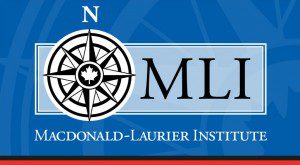 Much has been made of the intellectual property provisions in the Trans-Pacific Partnership trade agreement. But to Richard C. Owens, writing in the Financial Post, Canada stands to benefit from the changes to IP protection.
Much has been made of the intellectual property provisions in the Trans-Pacific Partnership trade agreement. But to Richard C. Owens, writing in the Financial Post, Canada stands to benefit from the changes to IP protection.
By Richard C. Owens, Nov. 14, 2015
There appears to be some alarm about the intellectual property provisions of the Trans-Pacific Partnership, that the deal amounts to IP encirclement by the United States and will cost Canada dearly in the years ahead. The tracks of the foxy United States may mar the TPP, but on my reading they are exceedingly well hidden if they are there at all.
Like most intellectual property treaties, the TPP largely enforces the status quo. IP is subject to foundational treaties that cover much more of the world than the TPP and the TPP is expressly subject to them. Moreover, the TPP reflects other recent treaties that Canada has already implemented, such as the Copyright and the Performances and Phonogram Treaties negotiated under the aegis of the World Intellectual Property Organization. Canadians will benefit when the TPP subjects trading partners to the same standards of IP protection.
The TPP will be good for Pacific Rim countries, especially developing economies. Studies of development and IP indicate the importance of strong legal rights as a pillar of development and prosperity. The TPP commits member countries to helping the less advantaged develop and improve IP laws and enforcement.
Reported concerns include that Canada’s attempt to obtain anti-abusive behaviour for copyright and patent trolls failed, and that foreign court decisions could be enforced in Canada now.
First, it isn’t clear whether rules to interfere with abusive behaviour for copyright and patent trolls were ever part of Canada’s negotiating position. Nor is it clear just what are appropriate rules to deal with the “trolls” — or even if we ought to (one man’s troll is another’s market intermediary, providing liquidity to small inventors). And anyway, the apparent absence of treaty rules leaves government free to act, which means Canada can set its own rules.
A second alleged issue is that TPP expands the range of inventions that may be patented. That might be a good thing, but the TPP does not do that. The most recent limitation on subject matter of Canadian patents — unique to Canada — is for higher life forms, and this limitation is expressly preserved in the TPP (a bad idea, but that is another story).
Under TPP, will patent terms be longer to take into account the time to grant the patent? Not so: the TPP provides that patent life would be extended only if the time to grant is really excessive — more than five years, excluding delays that were not the fault of the examining authority.
As to the decisions of foreign courts, it happens in all sorts of areas of law that foreign decisions are enforced in Canada under the rules of judicial comity. This concern may have originated with a requirement for Internet service providers to take down infringing material on notice of a judgment finding infringement. In a previous leaked version of the TPP that judgment could have been foreign, but that is not the case in the final version.
This seems to dispense with some specific concerns. What else could make the TPP such a disaster of Canadian innovation policy?
A significant change is the extension of copyright protection from a term of the life of the author plus 50 years, to the life of the author plus 70 years.This has long been the rule in the United States, the most innovative economy in the world, demonstrating that term extensions are consonant with great innovation, and may in fact cause it. It also seems like a benefit to Canadian authors and their estates that is more than a fair trade-off for costs to the public domain.
It is said that Canadians will suddenly have to pay for inputs to innovation. But what inputs might these be? Patent isn’t expanded. Copyright is and it protects computer software. But its commercial lifespan is typically far too short to benefit from copyright extension; many producers do not even bother to apply for available patent protection because it is expected that the value of the software will expire before the patent application process concludes.One might also ask whether it is not simply fair that Canadians pay for foreign inputs where foreign nationals have to pay for ours. The TPP and other IP treaties are generally based on national treatment, so that Canadians, for instance, already benefit from the U.S.’s 70-year term.
Critics will argue that the TPP truncates Canadian sovereignty in respect of its IP policies. Of course: the whole point of a trade treaty is to sacrifice discriminatory policies — which usually only hurt those enacting them — for gains in trade. Canadian innovators will be better off with predictable, universal rules.
In the many pages of IP provisions there is a great deal of careful thought and wise provision. The text includes protection of public health initiatives and enshrinement of the importance of access to medicines; reciprocity on broadcasting collectives treatment; cooperation on traditional knowledge; technical assistance to developing economies; greater enforcement against counterfeit goods, to the benefit of consumers and business alike; and recognition of Canada’s existing IP laws.
To know exactly how each provision will be implemented and with what effect exceeds the possible right now, so we can remain vigilant. Some today cry wolf, but actually we are off to a good start. Now it is up to our new Liberal government to see to it that Canada will benefit from accession to the treaty and implementation of its provisions.
Richard C. Owens is an adjunct professor at the University of Toronto Faculty of Law.




